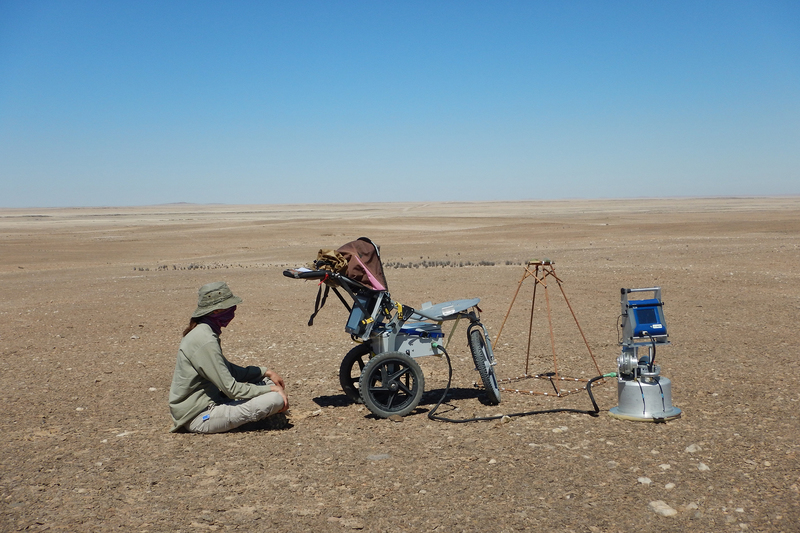Kicking up dust on a global scale
03 January 2020 | Story Natalie Simon. Photo Supplied. Read time 3 min.
Dust feeds the Amazon and fertilises depleted oceans: feeding phytoplankton which in turn absorbs carbon emissions. It affects climate by absorbing or scattering light, and through its role in climate formation. We know that dust plays a vital role in the world’s physical, biological and chemical cycles, but the sources of dust emission are less well understood.
Dr Johanna von Holdt, then a PhD researcher in the Department of Environmental and Geographical Sciences, is working to understand dust emissions from the Namib desert in Namibia, and has published her data on ZivaHub: Open Data UCT as part of a drive to create a consolidated data set of dust emissions globally.
Von Holdt, who is now doing postdoctoral research in the Department of Chemical Engineering, spent about a month camping in the Namib desert, using a combination of satellite imagery and ground measurements from a portable wind tunnel to test dust emissions at selected sites.
“With a global data set we could come up with more accurate estimates of how much dust is actually emitted.”
“There are several researchers around the world doing similar field research, in the United States, Mongolia and Australia, among other places.” says von Holdt. “But at this stage the research is still very siloed.”
To try and break out of the silo, Von Holdt is suggesting the use of a standard protocol and classification scheme which, if followed by other researchers doing this kind of work, would allow for the merger of these varied data sets. In publishing her data openly on ZivaHub she is striving to set a standard for interoperability to enable research collaboration, and to create more powerful data sets.
“With a global data set we could come up with more accurate estimates of how much dust is actually emitted,” explains Von Holdt. “And considering dust’s importance in earth systems, a better understanding of dust emissions will have positive impacts on a range of models, particularly climate modelling.”
For more stories like this, take a look at our 2018-2019 UCT eResearch Report. This work is licensed under a Creative Commons Attribution-NoDerivatives 4.0 International License.
This work is licensed under a Creative Commons Attribution-NoDerivatives 4.0 International License.
Please view the republishing articles page for more information.
Research & innovation





































